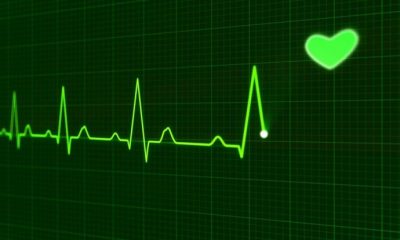Scientists have created a machine that will listen to your farts, pee, and poop. Yes, that’s right. The machine will recognize and analyze the sound of each bathroom-related activity.
The scientists have cleverly named the machine Synthetic Human Acoustic Reproduction Testing machine (S.H.A.R.T.). It is a mechanical device fitted with pumps, nozzles, and tubes. The contraptions are meant to recreate the physics and sound of human bodily functions.
The creators of the S.H.A.R.T. machine presented their work at the American Physical Society’s annual Fluid Dynamics conference. Their results are yet to be published in a peer-reviewed journal.
Scientists are training AI to detect and scrutinize scatological sounds so that it can one day help in diagnosing deadly diseases like cholera and nip a potential outbreak in the bud.
“There’s an outbreak and resurgence in Haiti as we speak,” Maia Gatlin, an aerospace engineer at the Georgia Tech Research Institute (GTRI), said at the presentation, reported Inverse. Faster detection of cases will help curb outbreaks like these, Gatlin added.
The researchers want to use the AI model in tandem with relatively cheap sensors and put them to use in vulnerable regions.
“And as we classify those events, we can start to collect that data,” Gatlin said. “It can say, ‘Hey we’re seeing an outbreak of lots of diarrhea.’ Then we can start to quickly diagnose what’s going on in an area.’”
Sounds are a non-invasive way to remotely analyze bowel conditions. “Self-reporting is not very reliable,” David Ancalle, a mechanical engineering student at Georgia Tech, said, according to the outlet. “We’re trying to find a non-invasive way where people can get a notification on whether or not they should go get checked out. Like ‘Hey, your urine is not flowing at the rate that it should. Your farts are not sounding the way they should. You should check it out.’”
The AI was fed publicly available audio and video of excretions, with frequency spectrum captured of each one of them. The AI was then ready for SHART machine testing.
SHART played out different sounds of human outputs with the help of water pumped through the machine. “A lot of thought went into each of the sounds,” Gatlin said. “There was a subsystem for each sound on this little machine.”
“It actually performs pretty well,” Gaitlin continued.
The AI was able to successfully identify the correct “excretion event” with 98 percent accuracy, according to early data.
The scientists are adamant that they want their work to be budget-friendly for everyone.
“We’re not trying to come up with million-dollar equipment,” Ancalle said. “We are trying to make this something that can be afforded by just everyone, particularly since the project is focused on urban areas with weak health systems. The affordability aspect is very important for us.”
















